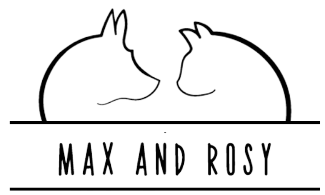
Healthy Baking for Dogs: The Best Flour to Use - Oat, Rice, Buckwheat and Chickpea
When it comes to spoiling our furry friends with homemade treats, selecting the right ingredients is crucial for their health and happiness. One of the key components in many dog treat recipes is flour. However, not all flours are created equal, especially when it comes to canine nutrition. In this blog, we’ll explore the best types of flour to use for baking dog treats, with a special focus on chickpea flour, and also highlight some flours that are best avoided.
The Best Flours for Dog Treats
1. Chickpea Flour
Chickpea flour, also known as garbanzo bean flour, tops our list for several reasons. It is not only grain-free but also high in protein and fiber, making it an excellent choice for dogs, especially those with grain allergies. Chickpea flour is also rich in essential vitamins and minerals, supporting overall health. Its subtle, nutty flavor is generally well-liked by dogs, and its dense texture makes it great for crafting firm, crunchy treats that dogs enjoy chewing.
2. Oat Flour
Oat flour is another fantastic option for dog treats due to its nutritional profile and digestibility. It is particularly beneficial for dogs with sensitive stomachs as it is known for being gentle on the digestive system. Rich in soluble fiber, oat flour can help regulate blood glucose levels and improve bowel regularity. Moreover, it's a great source of vitamins and minerals like manganese, biotin, and Vitamin B, which are essential for a healthy canine coat and skin.
3. Rice Flour
Rice flour comes in as another suitable choice, especially for dogs with allergies to wheat. It is typically made from finely milled white or brown rice, making it easily digestible. Rice flour is a good alternative carbohydrate source for dogs needing a high-carbohydrate diet, especially those that are highly active. However, it's lower in protein compared to chickpea and oat flours, so it should be used in moderation.
4. Buckwheat Flour
Despite its name, buckwheat is not related to wheat; it’s actually a seed. Buckwheat flour is gluten-free and packed with nutrients like protein, fiber, and energy-boosting B vitamins. It's also rich in antioxidants, which are great for overall health. Its strong, distinct flavor might take some getting used to for some dogs, but it’s often well-received when mixed with other more familiar ingredients.
Flours to Avoid in Dog Treats
While several flours are beneficial for dogs, there are some that should generally be avoided:
1. White Wheat Flour
Commonly used in human baking, white wheat flour is highly processed and lacks the nutritional benefits found in whole grain or alternative flours. It can also lead to spikes in blood sugar levels and is not recommended for dogs, especially those that are overweight or diabetic.
2. Whole Wheat Flour
Although better than its white counterpart, whole wheat flour can still pose problems for dogs with wheat allergies or sensitivities, which are relatively common. Symptoms of a wheat allergy can include itchy skin, ear infections, and digestive discomfort.
3. Almond Flour
While not toxic, almond flour is very high in fat, which can be hard for dogs to digest and may contribute to weight gain and other health issues like pancreatitis.
In conclusion, when baking for your dog, choosing the right flour is crucial. Chickpea, oat, rice, and buckwheat flours are all excellent choices that provide various health benefits while keeping your dog’s meals interesting and delicious. Remember to avoid or limit the use of white wheat, whole wheat, and almond flours to keep your furry friend healthy and happy. Happy baking!
